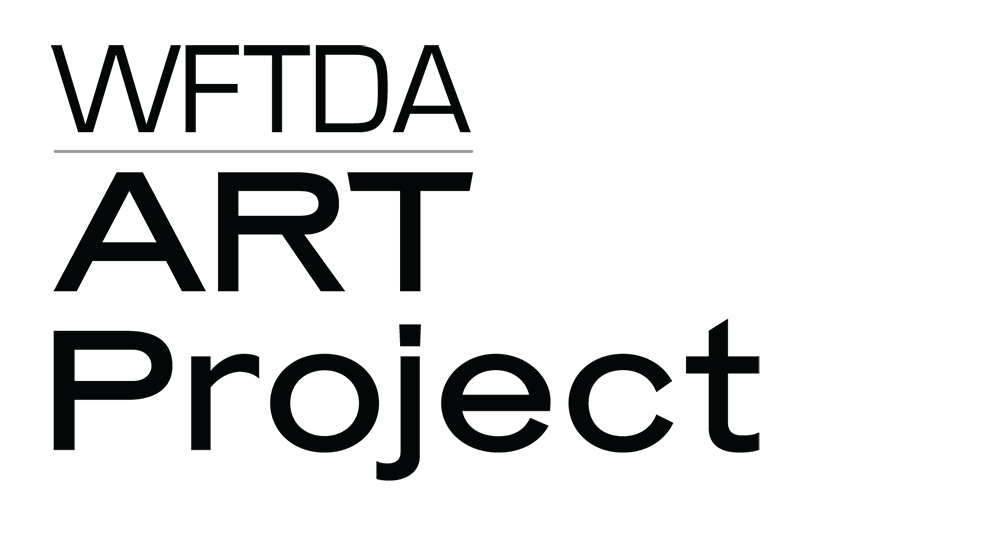
WFTDA Announces The ART Project Panel Members and Anti-Racism Review Process
This month, the WFTDA kicked off Phase One of The ART Project with an introductory meeting of our newly-selected panel members. The Anti-Racism Team Project (ART Project) is a panel-led process that prioritizes voices that our organization has excluded over the course of our 15 years: the voices of our BIPOC community members. It is our hope that the ART Project will help the WFTDA re-envision an equitable and community-led organization through a multi-phase approach.
Phase One of the ART Project will last for roughly six months and use Idealized Design to examine our organization and envision new and innovative solutions for how the WFTDA can serve members best. In particular, Phase One panel members will be compensated to examine Membership, Organizational Function, and Governance in the WFTDA.
To do this important work, we put out an open call for community members to apply to be on our ART Project panel. We were overwhelmed by the community’s response, and we received over 70 applications. Our WFTDA Accountability Partners and members of our Diversity and Inclusion Committee helped review the applications, and assisted in the selection of the first several members of the panel. From there, the initial panelists helped to select the other members of their team, for a total of twelve panelists.
The WFTDA wants to thank everyone who applied, as well as our Accountability Partners and D&I members who contributed to the review process. We are developing a community mechanism for feedback, and in the coming weeks, we’ll tell you how you can be involved!
The WFTDA is excited to introduce our Phase One panelists in their own words:
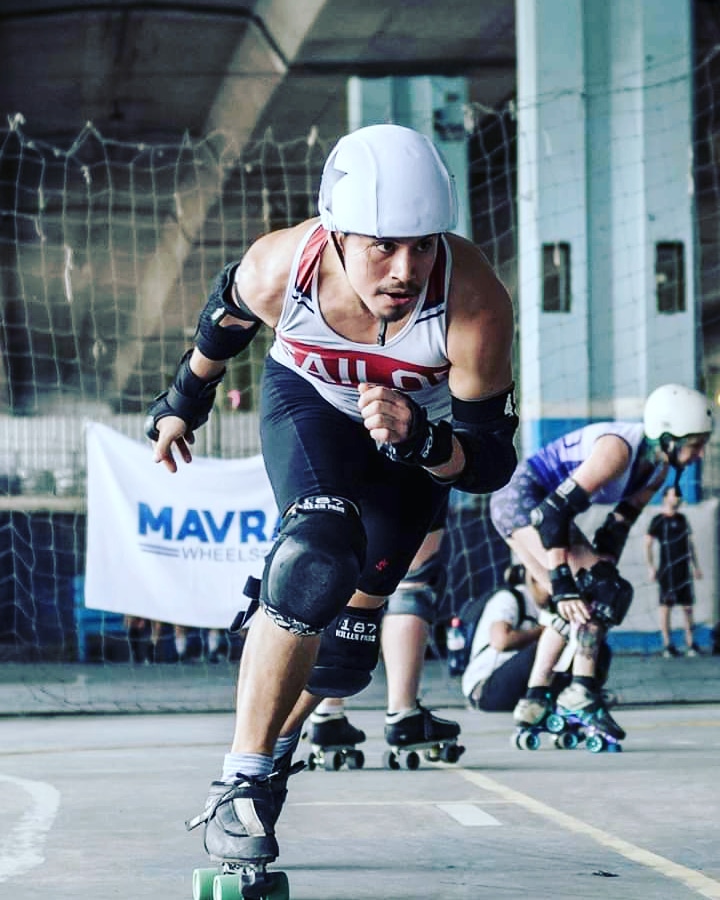 Facundo Nahuel Huanuco (Wari)
Facundo Nahuel Huanuco (Wari)
Sailor City Rollers – Buenos Aires, Argentina
“I spent a long time being shut, invisible to other voices. I think this is an opportunity to be part of a great change for my community and the next one, to build a safe place for all who want to practice this incredible sport. It is important for me to raise my voice, be contemplative, learn from my team, analyze situations, resolve conflicts, and whatever is necessary to eradicate the hate, the malicious human nature, that look what makes me feel inferior to others for many years. It’s time to change that. I want to be part of this because it is necessary to start over and build a safe place for the people I love and care for.”
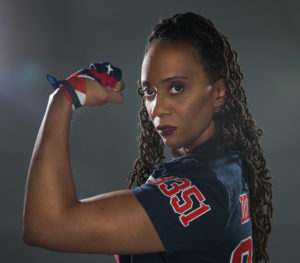 Tracey Hughes (Dreadlocked N. Loaded)
Tracey Hughes (Dreadlocked N. Loaded)
Kansas City Roller Warriors – Kansas City, Kansas, USA
“With derby being on hold due to COVID-19, this is a perfect time to address issues involving race & racism in the sport. I have had many conversations about race with folks personally and professionally (I’m a librarian in my other life), and I take the time to share resources of interest through my “#RacismSyllabus” Google Doc, as well as on the League of Accomplices Facebook page. I’m hopeful that there is enough interest and activity towards making tangible, lasting change within derby, and I would like to assist with those changes as much as reasonably possible.”
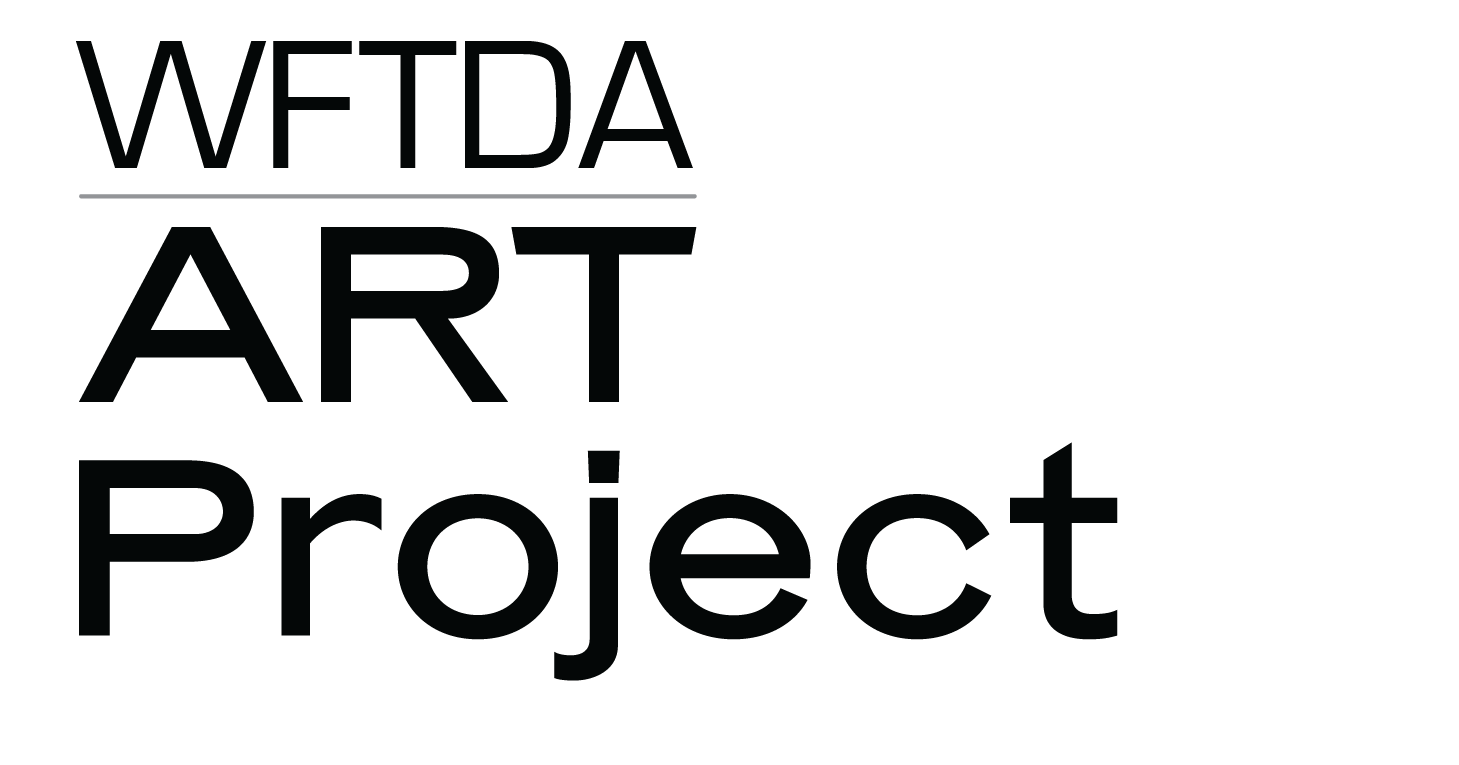 Abigail Tjhay (Wasabi)
Abigail Tjhay (Wasabi)
Amsterdam Roller Derby – Amsterdam, Netherlands
“While I only joined roller derby 2 years ago I’ve been continually confronted with the lack of East-Asian role models in this sport. I would love to work on a project that addresses these kinds of issues for all BIPOC running into the same issues. I would love to help in setting the scope of the ART Project with my experience as a second-generation Asian migrant in Europe and knowledge as a social scientist in the area of inequalities in the broader sense. I think the European take on racism is very important for WFTDA as it differs in subtle ways from the US.”
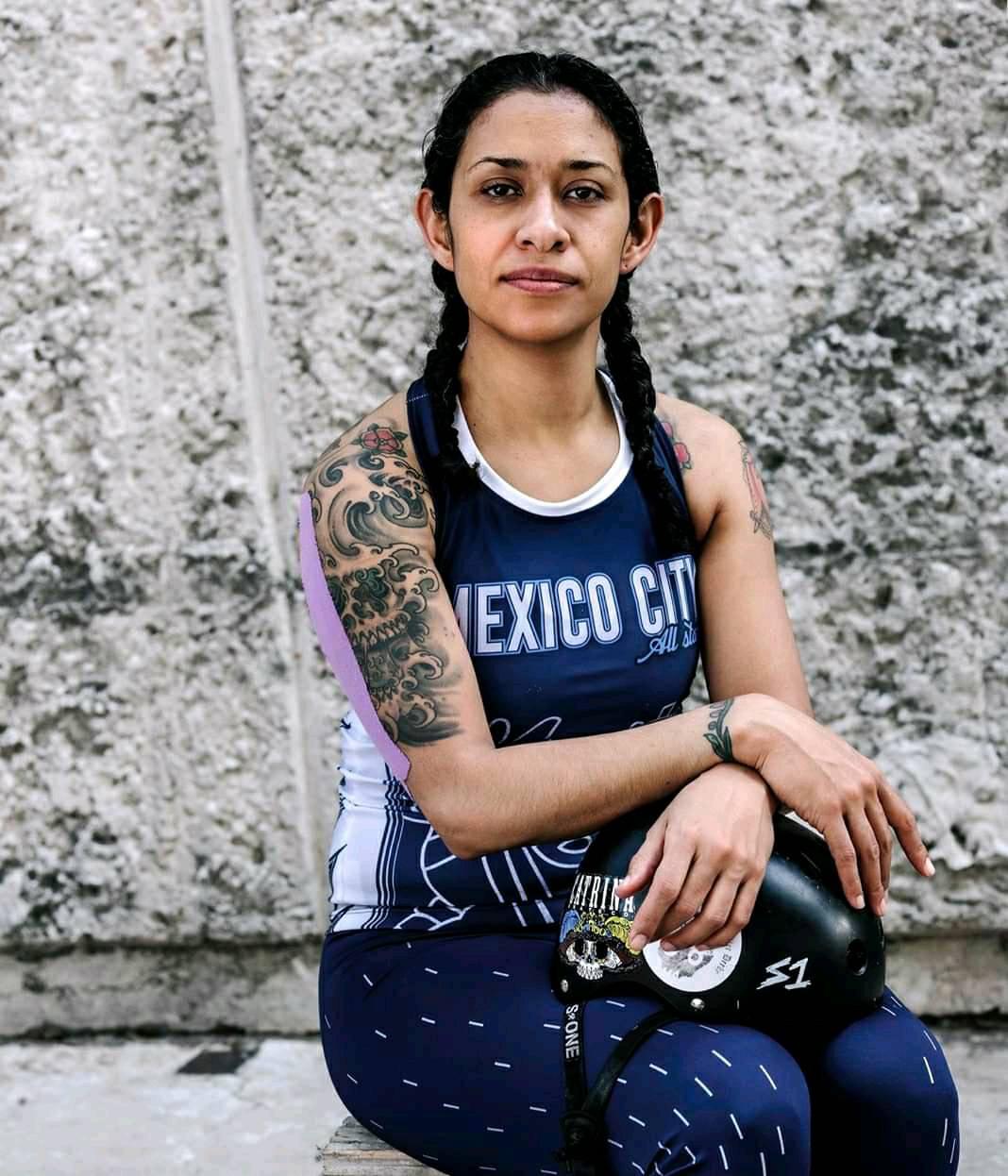 May-ek Querales-Mendoza
May-ek Querales-Mendoza
Mexico City Roller Derby – Mexico City, Mexico
“I’m a migrant afro Mexican woman, and I skate for the Mexico City Roller Derby team, WFTDA members since 2018. I think that Roller Derby is an extensive community that goes beyond the track and it requires work in order to build better conditions for the community members. Pursuing that aim I have been part of the board of my League since 2019 and I think I can collaborate within the current WFTDA processes. I consider that the current political situation is a good time to improve the normative structures and values that underpin the Roller Derby. This is a good time to learn and consolidate safe spaces for everyone and expand the dynamics of inclusion in our sport.”
 Brittany Bear (Spock)
Brittany Bear (Spock)
Roughneck Roller Derby/ Team Indigenous – Tulsa, Oklahoma, USA
“I am Mvskoke Creek of the Rvro Kvlkv (Fish Pond) tribal town. I reside on the Creek Reservation in Tulsa, Oklahoma. My great great great grandfather Charlie Coker fought in the Crazy Snake Rebellion during which the traditional Creeks fought land allotment and the Dawes Act in the early 1900’s, so my roots here run deep. I am interested in holding our derby community accountable for their actions and language in the midst of injustice. I desire to work with my peers towards a path of compassion and understanding as our world becomes more and more divisive. Perhaps it is just as divisive as it’s ever been, but to at least create bridges and educate those who need it most.”
 Danielle Mireles (Dana Skull E.)
Danielle Mireles (Dana Skull E.)
San Fernando Valley Roller Derby – Sylmar, California, USA
“My interest in the ART project is deeply connected to my lived experiences as a Disabled and Queer Latinx roller derby skater, and a critical race scholar. I am invested in creating and maintaining anti-racist spaces within roller derby and recognize the importance of dismantling all systems of oppression (as they all work together to uphold white supremacy). Policies and practices within roller derby that appear “race-neutral” or “objective” ignore the impact they have on BIPOC (Black, Indigenous, People of Color). Centering anti-racism and anti-racist work requires a radical reimagining of roller derby spaces and communities. This work must center the lived experiences, experiential knowledge, and resistance of BIPOC and multiply-marginalized BIPOC.”
 Voon-Li Chung (Vector)
Voon-Li Chung (Vector)
Western Australia Roller Derby – Perth, Western Australia
As a geographically isolated official of Chinese descent, I believe I can bring to the ART project a unique perspective that would help ensure that Officiating embraces the push towards greater ethnic inclusivity.”
 Snooky Wong (Karluna)
Snooky Wong (Karluna)
Hong Kong Roller Derby – Hong Kong Special Administrative Region of the People’s Republic of China
“I believe in order to work on giving our community members a voice, we have to work on helping to establish leagues internationally and not just in America. As the Asian derby community continues to grow, more members can be present in international tournaments and encourage more leagues to host their own events here in Asia. I would love to be a part of ART and help bridge that gap. I believe our derby community is a reflection of the society we live in. From the political issues we face to the individuals who make up the community, we all have something to offer and things to improve. I am grateful for the experiences and friendships I have gained along the way, and I would love to give back to this great community that has helped me grow as a person. I hope to make important and necessary changes to our derby community. I also believe being a part of ART would allow me to gain valuable insight from other well-established leagues that have experienced similar issues and get resources that would be able to help deal with the problems that exist within smaller leagues like ours here in Asia.”
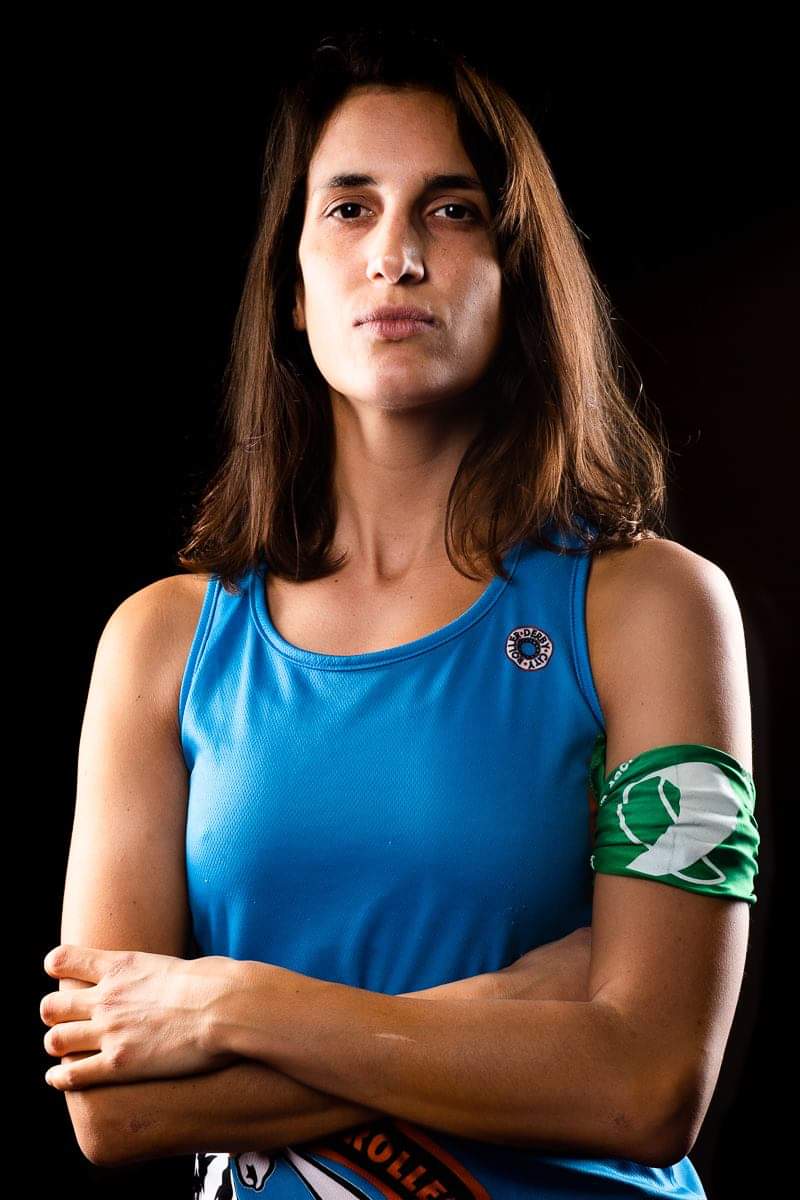 Celeste Tortosa (Bella Ciao)
Celeste Tortosa (Bella Ciao)
Vienna Roller Derby, Vienna, Austria
“I have the strong conviction that racism must be fought every day, in every corner, all the time – not just when we are harassed or brutally discriminated against. There is indeed a systemic racism, which has to be addressed and sports can definitely contribute to that. Putting together BIPOC members of our community is an essential step towards equality and inclusion structures. My experience is anchored as a BIPOC in an European Roller Derby League, where I take part of the “Diversity and Inclusion” working group, which basically tries to bring this topic to the table and reflect on how Roller Derby has to (among others) necessarily step out and reach out other communities, in order to put in practice our “Anti-racism” value. Besides my experience with Roller Derby, I dedicate myself professionally in the fight against racism in Europe, working in a non-profit organisation, centered on a feminist perspective.”
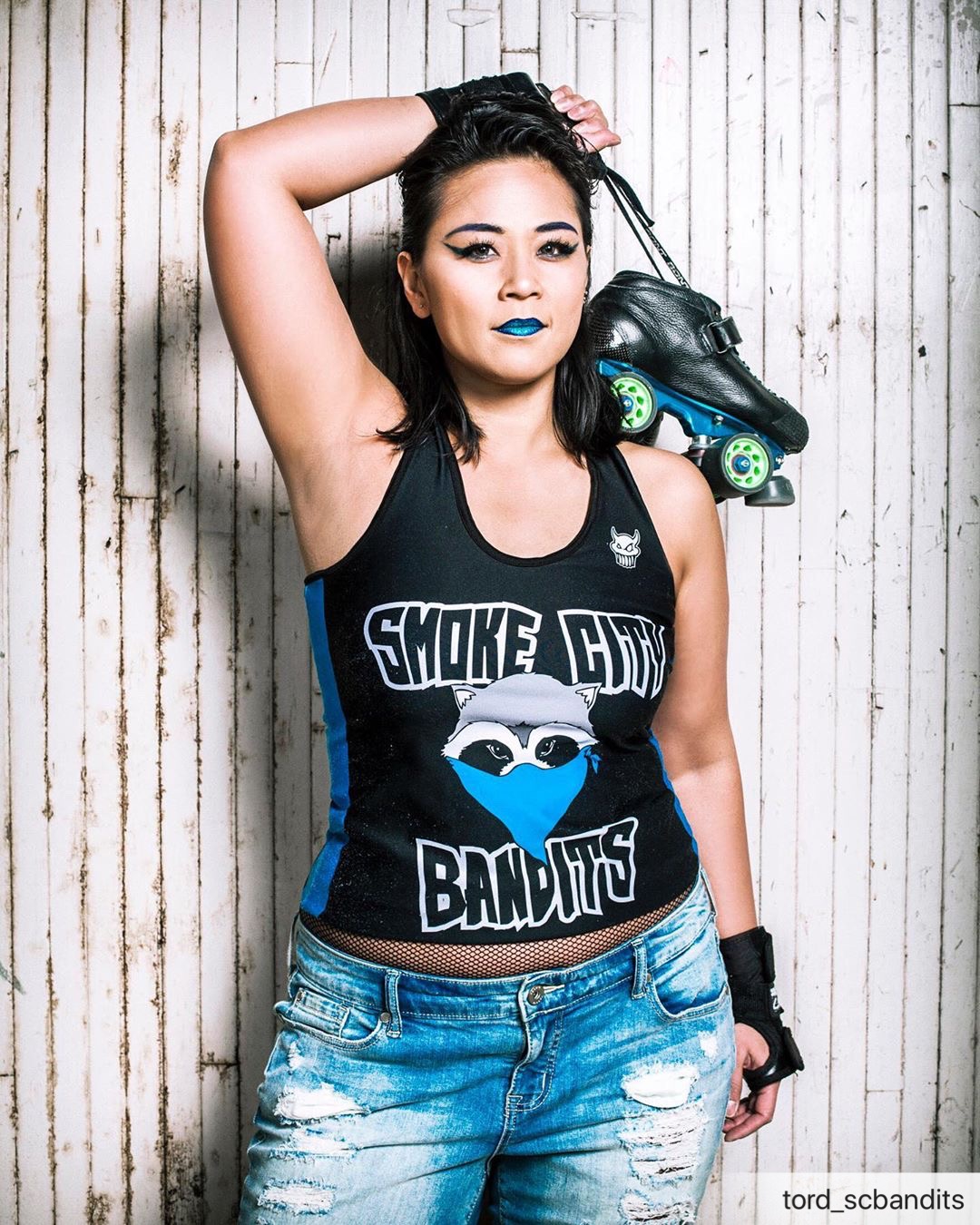 Iris Bigornia (Viris)
Iris Bigornia (Viris)
Toronto Roller Derby – Toronto, Ontario, Canada
“I grew up in the Philippines and moved to Canada at 15 years old. I am 41 now and I started skating with Toronto Roller Derby when I was 36 years old. I am very interested in supporting the WFTDA initiative in making BIPOC voices to be heard. I will not have all the answers, and at times I also find myself learning, and recognizing the implicit biases I may have. This is a constant learning process, and by learning means asking questions, checking yourself, sometimes letting go and understanding what is really important to learn. I hope to be able to contribute to the diversity and learning of WFTDA as a whole.”
 Sakenya McDonald (PeaceMacker)
Sakenya McDonald (PeaceMacker)
HARD Roller Derby – Flagstaff, Arizona, USA
“I believe that roller derby is an opportunity for women to be strong, bold, and beautiful. As a referee, I bring a different perspective to what it feels like to be a person of color involved in roller derby. To some extent, RD is still a classist and elitist sport, which minimizes the participation of persons of color or persons with disabilities. This reveals tremendous opportunities for disrupting and dismantling all systems of oppression within the WFTDA and I would personally like to be involved in conversations looking at how the history of racist structures in this country are embedded in roller derby including what oppression “looks like” in derby and ways to better promote systemic progress and change. When I am not reffing, I am a doctoral candidate whose research looks at girls of color and educational inequities that are the products of systemic apathy and racial/gender bias and I believe participating in the WFTDA ART Project will be a great way for me to introduce the sport of derby to girls and families of color.”
 Jarral Boyd (Assault N Pepa)
Jarral Boyd (Assault N Pepa)
Bear City Roller Derby – Berlin, Germany
“I am a somewhat new but fairly active member of the WFTDA Diversity and Inclusion Committee. I have a ton of ideas on how to move forward with dismantling white supremacy and promoting antiracist education within our organization. I am great at solving structural problems, particularly within this context in roller derby, and I would love to have the opportunity and motivation to take on more focused tasks. Although I am very passionate about it and have volunteered many, many hours of labor, I also believe that BIPoC needs to be compensated for this work, and not always expected to do it for free.”